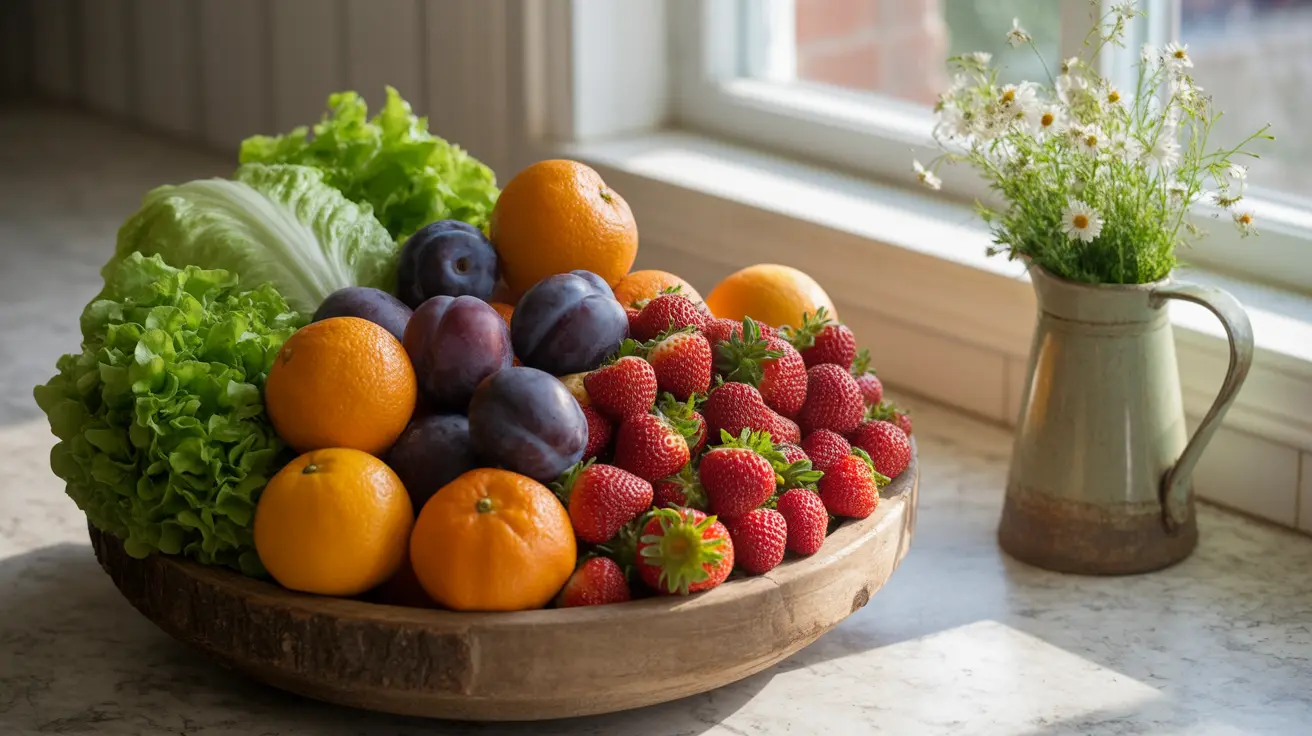High bilirubin levels can be concerning, but there are several effective ways to manage and reduce them through dietary and lifestyle modifications. Understanding how to lower bilirubin naturally is crucial for maintaining optimal liver health and preventing complications associated with hyperbilirubinemia.
In this comprehensive guide, we'll explore evidence-based strategies for reducing bilirubin levels, including specific dietary recommendations, hydration tips, and lifestyle changes that can support your liver's natural detoxification processes.
Dietary Approaches to Lower Bilirubin
A well-planned diet plays a crucial role in managing bilirubin levels and supporting overall liver health. Focus on incorporating these beneficial foods into your daily meals:
Liver-Supporting Foods
Include these nutrient-rich foods in your diet to help lower bilirubin levels naturally:
- Fresh garlic and onions
- Leafy greens like spinach and kale
- Cruciferous vegetables such as broccoli and cauliflower
- Lean proteins like fish and chicken
- Whole grains
- Fresh citrus fruits
Antioxidant-Rich Options
Foods high in antioxidants can help protect liver cells and support healthy bilirubin metabolism:
- Berries (blueberries, strawberries, raspberries)
- Green tea
- Dark chocolate (in moderation)
- Nuts and seeds
- Pomegranates
- Sweet potatoes
Hydration and Bilirubin Levels
Proper hydration is essential for maintaining healthy bilirubin levels. Water helps flush toxins from your system and supports optimal liver function.
Recommended Fluid Intake
Aim to consume:
- 8-10 glasses of water daily
- Herbal teas (especially dandelion or milk thistle)
- Fresh vegetable juices
- Coconut water
Foods and Beverages to Avoid
Certain foods and drinks can strain your liver and potentially increase bilirubin levels. Consider avoiding or limiting:
- Alcohol
- Processed foods
- Saturated and trans fats
- Sugary beverages
- Excessive caffeine
- Fried foods
Lifestyle Modifications for Better Results
Combining dietary changes with healthy lifestyle habits can enhance your efforts to lower bilirubin levels:
- Regular moderate exercise
- Adequate sleep (7-9 hours nightly)
- Stress management techniques
- Maintaining a healthy weight
- Avoiding smoking and second-hand smoke
Frequently Asked Questions
- What foods can help lower high bilirubin and support liver health?
Foods that help lower bilirubin include fresh fruits and vegetables, particularly leafy greens, garlic, onions, and cruciferous vegetables. Lean proteins, whole grains, and foods rich in antioxidants like berries and green tea are also beneficial for liver health.
- Can drinking more water help reduce bilirubin levels, and how much should you drink?
Yes, drinking adequate water helps flush excess bilirubin from your system. Aim for 8-10 glasses (64-80 ounces) of water daily. You can also include herbal teas and fresh vegetable juices in your fluid intake.
- Are there any specific vegetables or fruits that are best for lowering bilirubin?
Dark leafy greens, cruciferous vegetables, citrus fruits, and berries are particularly effective for lowering bilirubin. These foods contain compounds that support liver function and help process bilirubin more efficiently.
- What foods and drinks should I avoid to help bring down my bilirubin levels?
Avoid alcohol, processed foods, fried foods, and excessive caffeine. Also limit foods high in saturated and trans fats, as well as sugary beverages, which can strain your liver and potentially affect bilirubin levels.
- What lifestyle changes, besides diet, can help manage or lower high bilirubin?
Key lifestyle changes include regular moderate exercise, getting adequate sleep, managing stress, maintaining a healthy weight, and avoiding smoking. These changes support overall liver health and can help regulate bilirubin levels.




